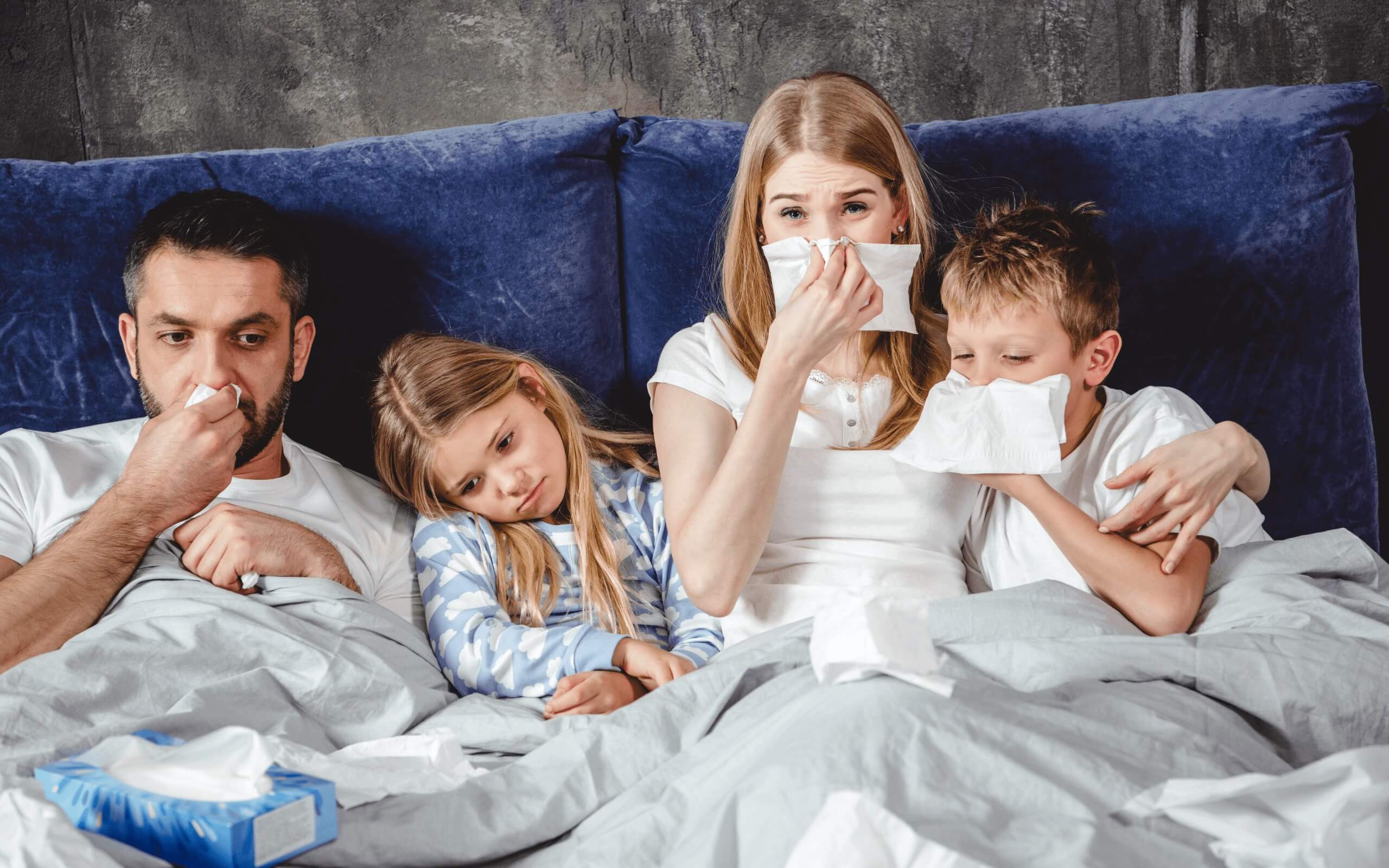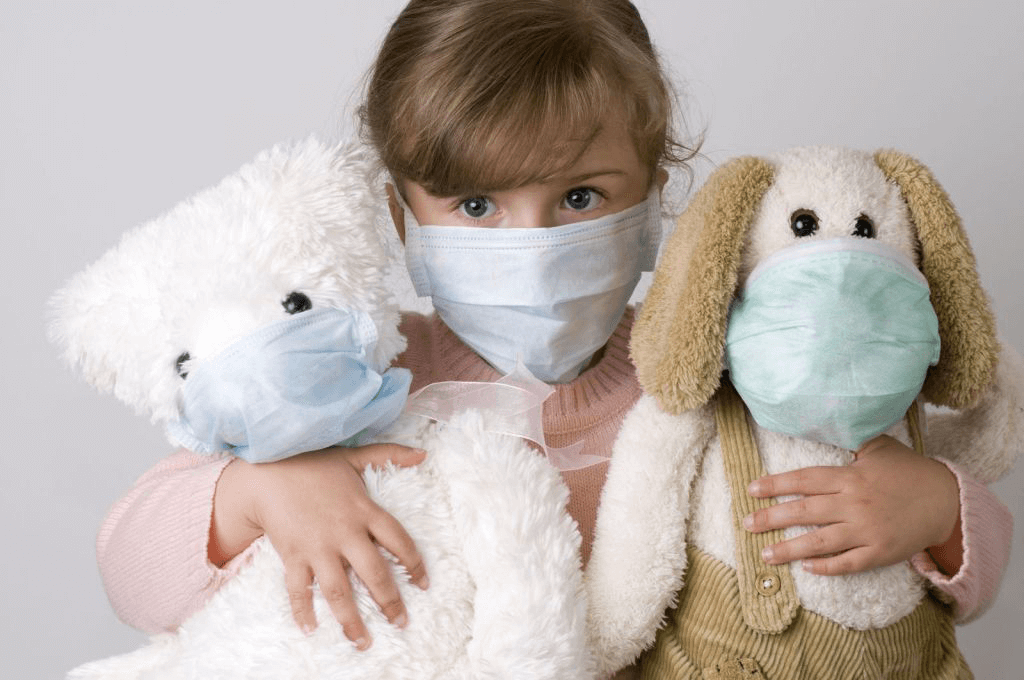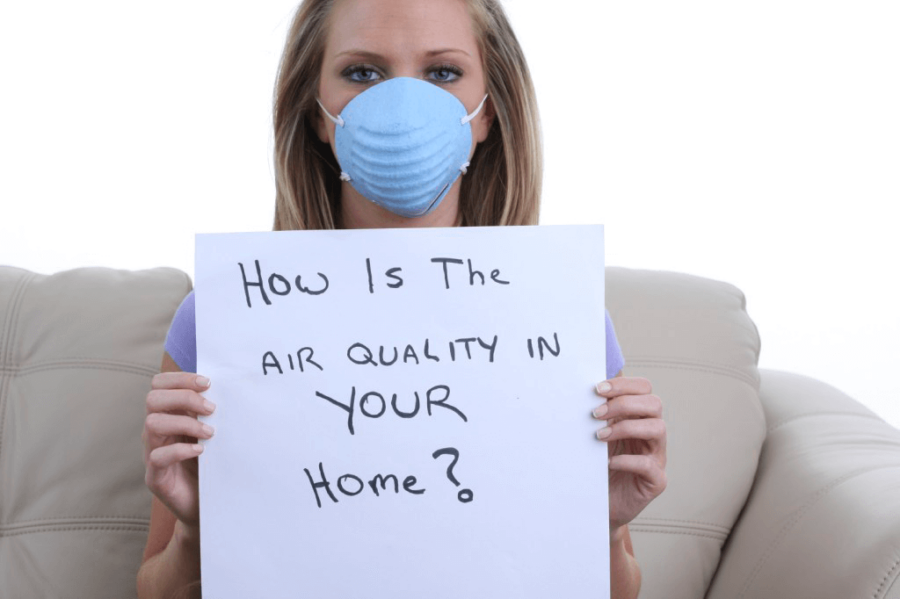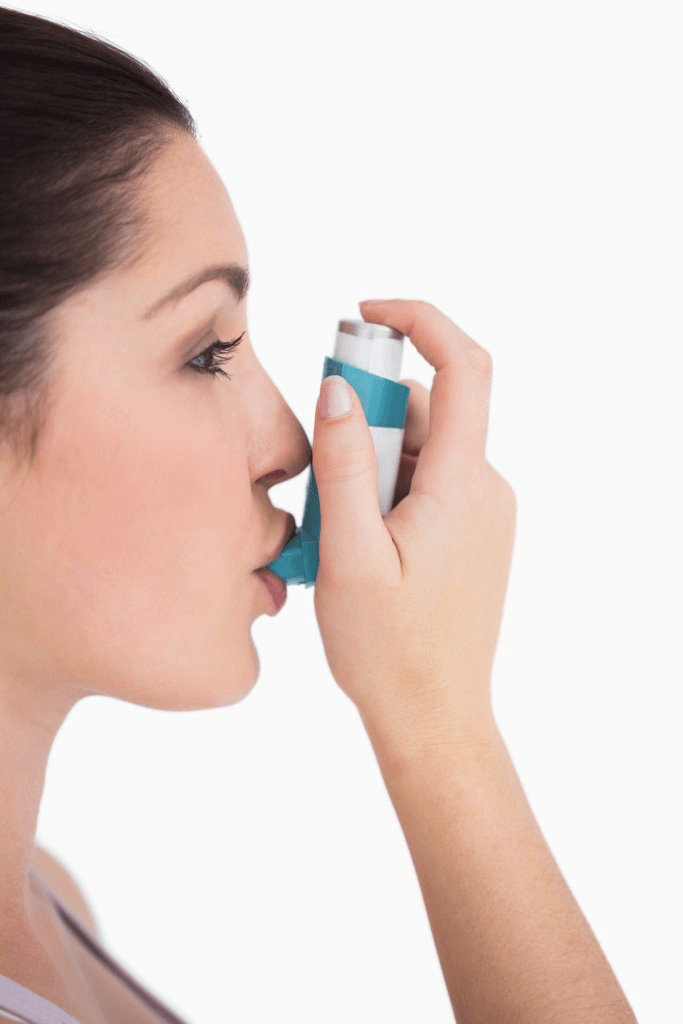If you think your home is safe from viruses that trigger infectious diseases like COVID-19, think again. Research shows that indoor air is at least five times more polluted than outdoor air, no matter where you live. Almost 90% of our time is spent indoors, so exposure to indoor air pollution over a long period puts people at risk for negative health effects.
Is the air in your home making you and your family sick? Here are a few signs to look out for in your household:
Unpleasant and irritating odors
You cannot see certain pollutants in the air, but foul smells can alert you to harmful levels within your home. There are many products used in the home like cleaning products, personal care products, pesticides and other chemicals that can produce toxic fumes, trigger unpleasant odors and cause a range of health effects. People who are sensitive to strong odors may experience a burning sensation that leads to coughing, wheezing or other breathing problems. In certain cases, odors from pollutants can cause headaches, dizziness, nausea, and may affect your mood and stress levels as well, depending on the concentrations of the pollutants you breathe and the length of time you are exposed to them. If you notice persistent odors inside your home, it’s time to improve your indoor air quality.
Odor, however, is not a very reliable method for determining the risk of health effects on your family. There are some harmful chemicals, such as carbon monoxide, that don’t emit an odor or cause noticeable side effects when individuals are exposed to high levels. In this case, it is vital to have an indoor air quality device that you can use to detect air quality problems when they arise.
Hyperactive Allergies and Aggravated Asthma Symptoms
Allergies or asthma attacks caused by airborne particles can occur anywhere at any time. If your allergies occur out of season or they seem to happen more than usual even when you’re inside, you might be experiencing an indoor air quality problem. Dust, smoke, pet dander, pollen, mold, and other allergens can cause respiratory problems, as well as skin, eye, and nose irritations. It is common for unhealthy levels of pollutants to go unnoticed, and people often assume that cleaning alone will fix the problem.
Persistent Cough and Colds
In a home where there is not enough humidity and airborne pollutants are present, a wide range of respiratory problems can develop including chronic coughing, sneezing, congestion, dry throat, and difficulty breathing. Leaving some of these conditions untreated can lead to more serious issues such as asthma and lung disease. If you notice that your family experiences frequent colds, coughing, or respiratory illnesses that don’t go away, you should check your home’s air quality.
Restless or Insufficient Sleep
Studies show that air quality affects everything about our health, including the length and quality of our sleep. According to one research study, people living in areas with high levels of air pollution were 60 percent more likely to sleep poorly than those living in areas with cleaner air. Air pollutants and sudden temperature changes increase the risk for breathing difficulties during sleep, which can lead to serious problems like sleep apnea, low blood oxygen levels in the brain, and even cardiovascular diseases. You may want to consider improving the ventilation or filtration inside your bedroom if you or your family are complaining about disrupted sleep patterns or not getting enough rest.
What Can You Do to Improve your Indoor Air Quality?
The telltale signs can give you an idea of whether your house is a breeding ground for harmful viruses and germs. However, they cannot tell you what the specific problems are or when they happen. For the right response to your air quality issues, you need to equip yourself with an indoor air quality monitoring device that can provide you with real-time information on all the important factors to create a safe, comfortable and healthy home. It can also help in providing you with insights that can guide you in choosing the right tools you will need to improve your air quality.
Let uHoo measure and monitor your air quality for a healthier environment.







